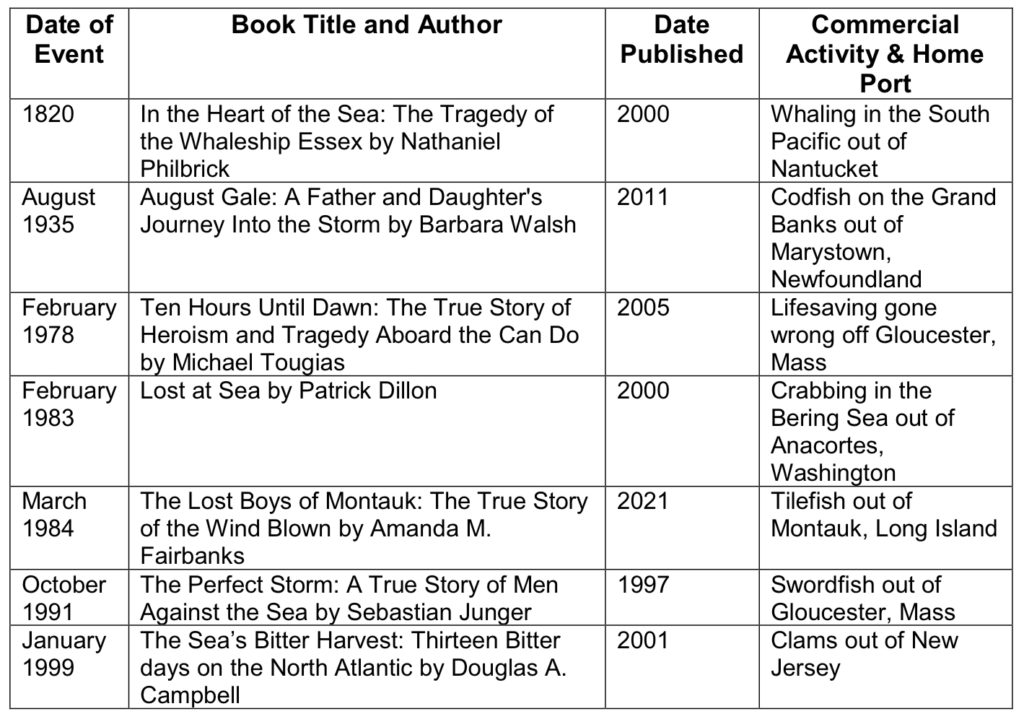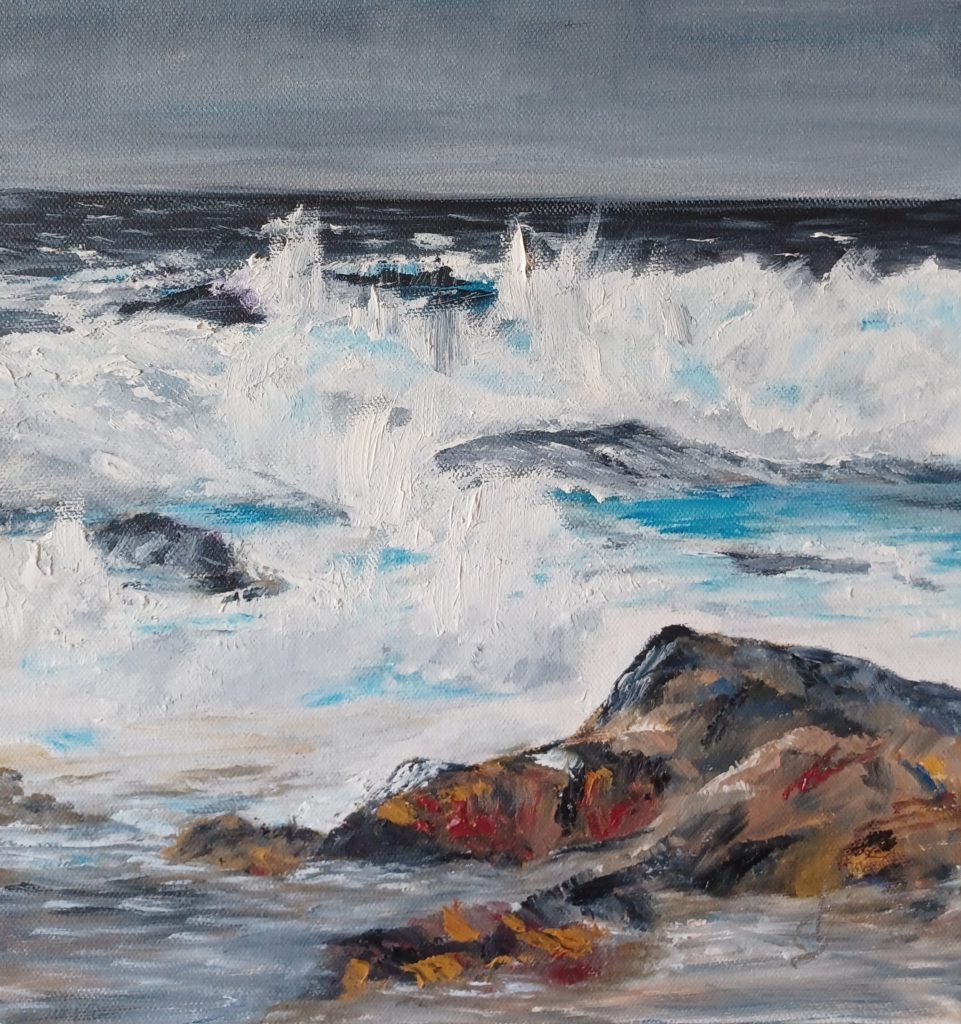What happens when humanity’s insatiable appetite for the bounty of the ocean meets head on with some of nature’s fiercest storms and natural perils? Sadly, the result is often disaster for the commercial fishermen who risk their lives to put seafood on our plates. I have had a somewhat morbid fascination with such stories over the years and have sought out books which describe the trials and tribulations of those who have encountered storms at sea. This is a quick review of a few of the books and authors which have had the greatest impact on me.

Most of these stories are well written as demonstrated by their accolades. In the Heart of the Sea was a National Book Award winner, Barbara Walsh is a Pulitzer Prize winner (though not for this book) and most of the other authors are successful journalists drawn to compelling dramas of the deep water. All of these tragedies occurred more than 25 years ago and a common theme is how commercial fishing was a largely unregulated and extraordinarily dangerous profession at the time, with mortality rates many times higher than any other profession. Weather forecasting technology was also not as well developed in those periods which caused some of the captains to be caught by surprise. In its own way each book focuses on both the personal and physical aspects of these disasters.

Rocky Shore, Original oil by Diane Segger
All of these books were inspired by horrendous storms, other than In the Heart of the Sea, which involved an 1820 whale attack on a wooden ship, an event which was the inspiration for Melville’s Moby Dick. Each involved commercial fishing, other than Ten Hours Until Dawn which described a life saving mission initiated by a tanker in distress. Michael Tougias, the author of that book, has written several books about the brave men and women of the Coast Guard and the difficult tasks they face (Michael has given fascinating talks to PPYC Education Committee evenings in BSM twice over the last few years).
The August Gale is one of the more complex narratives reviewed here as it stitches together three different story lines involving not only a hurricane and loss of ships and lives, but also complex stories of family history and dynamics. Lost at Sea and The Sea’s Deadly Harvest are both particularly effective in exposing some of the human frailties which contributed to some of the sad outcomes. Some of these books, including the Lost Boys of Montauk in particular, are also social histories delving into the evolution of quaint seaside fishing ports to either oceanfront “property” or ghost towns.
I particularly enjoyed the meteorological explanations for some of the storms (Blizzard of 1978 for instance) as well as the insights into the various different commercial fisheries. If you enjoyed the movie The Perfect Storm, any of these books will provide riveting and often harrowing insights into storm conditions and the dangerous lives of those who go down to the sea in ships.
Subsequent to submitting the above article for publication in the April BSM Beacon I came across a couple of additional books which could have easily also been profiled. Coincidentally, one of them is actually titled The Fury of the Seas, the title I had selected for this article (without the “s”). The compendium of 24 short stories about historical sea disasters assembled by Edward Rowe Snow was published in 1964. Another recent 2023 addition to this genre is the NY Times best seller The Wager: A Tale of Shipwreck, Mutiny and Murder by David Grann. It tells the harrowing account of a 1741 Royal Navy shipwreck off of South America. I really enjoyed that book.
This is the fourth in my series of BSM Beacon articles describing books written about the sea which I have enjoyed over the years.
